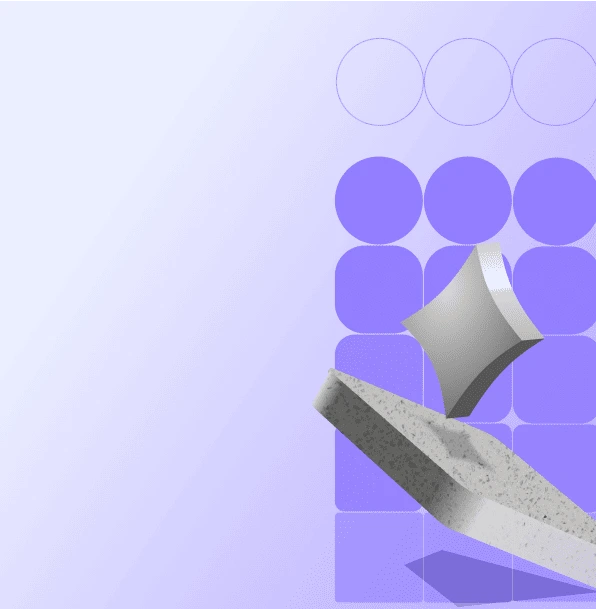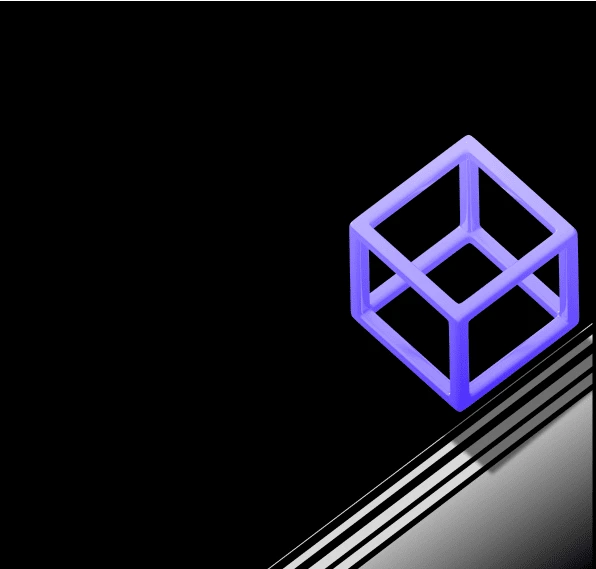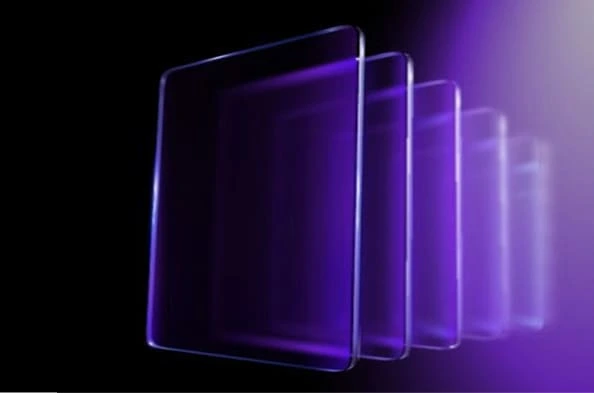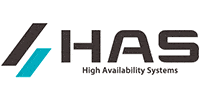6 undeniable facts to choose conversion with Ispirer
-
Fact 1/6
Same functionality, new application
Migration does not require labor-intensive development of new functionality from scratch. Your application will be converted to a new technology while maintaining the original functionality

-
Fact 2/6
Architecture preserved or modified
Automated conversion implies preserving the initial architecture which is easier to maintain. The app architecture, can also be transformed, for example, from desktop to the web to improve accessibility and scalability

-
Fact 3/6
The speed of conversion
Migrating an application is much faster than creating a new one from scratch. Automated migration with Ispirer Toolkit minimizes manual effort and may speed up the delivery by 2-3 times

-
Fact 4/6
Legacy System Transformation
Migrating COBOL to modern architectures or platforms can upgrade your application, making it easier to maintain, update, and extend in the long term run

-
Fact 5/6
Performance and Scalability
Through conversion, you can optimize the application's architecture and infrastructure, improving scalability and performance without the need to rebuild everything

-
Fact 6/6
No need for documentation
To perform the conversion, we go by your source code. There is no need to have detailed documentation in place to start the conversion as is the case with development

Conversion opportunities with Ispirer
Ispirer Ecosystem automates your migration routine to enable quick and smart transformation of any application. Double the migration speed with our comprehensive solutions.
-
With CodeWays only
- Free Metrics tool to analyze the migration complexity
- Assistance in CodeWays configuration
- Automated migration of the entire application including project files, business logic, GUI and database API
- Prompt customization of the tool to maximize automation rate
- Expert support

-
With CodeWays as a part of migration service
- Tailored migration roadmap from assessment through migration and testing to cutover
- Automated migration of the entire application, including project files, business logic, GUI and database API
- Team of experts skilled in application conversion
- Assistance in deployment, integration, performance optimization, and new feature development

Unleash the reinforced application
Save your time
Do it for 5 minutes
CodeWays for automated app conversion
CodeWays is a tool for automated application conversion that translates code from one programming language to another automatically, while preserving the initial functionality of an app. Using an intelligent proprietary algorithm, the tool analyzes the syntax, semantics, mapping data types, control structures, function calls, and code structures that do not have equivalents in a target technology.
Based on the analysis, CodeWays applies all the relevant conversion rules from its knowledge base core and translates COBOL source code to C#.
It takes 5 min to start your application conversion journey!
App source code & App source code with embedded SQL*
- Informix4GL
- Delphi
- Cobol
- VisualBasic
- Progress4GL
- PowerBuilder
- C/C++
Any files with SQL code
- Informix
- Teradata
- SQLServer
- Oracle
- IBM DB2
- SAP Sybase
- PostgreeSQL
- MySQL
- Greenplum
- MariaDB
- Firebird

-
App target code
-
App target code with converted ESQL
-
Files with SQL code for the target DB
*Embedded SQL are SQL statements written inline with the program source code, of the host language.
Convert Smarter. Evolve Faster
Dive into the tool’s features
- Delphi
- Cobol
- OracleForms
- Progress 4GL
- PowerBuilder
- C\C++
- IBM
- RPG
- Informix 4GL
- Delphi
- Cobol
- OracleForms
- Progress 4GL
- PowerBuilder
- C\C++
- IBM
- RPG
- Informix 4GL
- MSSQL
- Oracle
- OracleForms
- Progress 4GL
- C\C++
- Delphi
- Cobol
- Informix 4GL
- MSSQL
- Oracle
- OracleForms
- Progress 4GL
- C\C++
- Delphi
- Cobol
- Informix 4GL
Migration demo
COBOL to C# conversion service overview
More than 2K users use this way to
successfully convert their application code
- Collecting info about an APP
- Analyzing the APP and its components
- Making migration plan
- Entire APP conversion
- APP changes (API, ESQL)
- Manual code review and debugging
- Replacing custom controls, libraries, methods, etc. with analogues
- Developing remaining solutions using target technology
- APP analysis and test documentation creation
- Testing the application against test documentation
- Fixing issues
- Testing the APP against business requirements
- Fixing issues
- Switching APP
- System startup assisstance
Conversion Samples of COBOL to C#
Ispirer Toolkit analyzes all object dependencies during the conversion process and provides not only line-by-line conversion, but resolves type conversions as well. The software understands and transforms the necessary inheritance dependencies. It parses the entire source code, builds an internal tree with all the information about the objects, and uses it in the migration process.
To convert structures, we have implemented additional type conversion classes to store variable sizes to convert redefines and arrays so that they work similar to COBOL logic.
Common variables declaration structure conversion:
COBOL
- 01 varlnk.
- 05 varlnk-1 PIC 999.
- 05 varlnk-2 PIC X(10).
- 05 varlnk-3 PIC 9(7).
→ C#
- public VarlnkType Varlnk = new VarlnkType();
- public class VarlnkType : Record
- {
- public IntField Varlnk_1 = new IntField(3);
- public StrField Varlnk_2 = new StrField(10);
- public IntField Varlnk_3 = new IntField(7);
- }
Common REDEFINES conversion:
COBOL
- 01 var1 PIC XXX VALUE '111'.
- 01 var2 REDEFINES var1.
- 05 vvv1 PIC 9.
- 05 vvv2 PIC 99.
→ C#
- public StrField Var1 = new StrField(3, "111");
- public Var2Type Var2 = new Var2Type();
- Var2.Redefine(Var1);
- public class Var2Type : Record
- {
- public IntField Vvv1 = new IntField(1);
- public IntField Vvv2 = new IntField(2);
- }
Common array conversion:
COBOL
- 01 var5.
- 05 var5-occurs OCCURS 2 TIMES.
- 10 var5-occurs-txt PIC X(6) VALUE ' TEXT1'.
→ C#
- public Var5Type Var5 = new Var5Type();
- public class Var5Type : Record
- {
- public class Var5OccursType : Record
- {
- public StrField Var5OccursTxt = new StrField(6, " TEXT1");
- }
- public Var5OccursType[] Var5Occurs = (from occurs in Enumerable.Range(1, 2) select new Var5OccursType()).ToArray();
- }
COBOL call chain with PERFORMs conversion:
COBOL
- TopLevel.
- DISPLAY "In TopLevel. Starting to run program"
- PERFORM OneLevelDown
- DISPLAY "Back in TopLevel.".
- STOP RUN.
- OneLevelDown.
- DISPLAY ">>>> Now in OneLevelDown"
- PERFORM TwoLevelsDown
- DISPLAY ">>>> Back in OneLevelDown".
- TwoLevelsDown.
- DISPLAY ">>>>>>>> Now in TwoLevelsDown."
- PERFORM ThreeLevelsDown.
- DISPLAY ">>>>>>>> Back in TwoLevelsDown.".
- ThreeLevelsDown.
- DISPLAY ">>>>>>>>>>>> Now in ThreeLevelsDown".
→ C#
- private Compatibility CobSmplCblCompatibility;
- private static CobSmplCbl _instance;
- public static CobSmplCbl Instance
- {
- get
- {
- if (_instance == null)
- {
- _instance = new CobSmplCbl();
- }
- return _instance;
- }
- }
- public CobSmplCbl()
- {
- _instance = this;
- }
- public void Initialize()
- {
- CobSmplCblCompatibility = new Compatibility();
- CobSmplCblCompatibility.GetAllMethodsInfo(this);
- CobSmplCblProcedureDivision();
- }
- private void CobSmplCblProcedureDivision()
- {
- CobSmplCblCompatibility.InitializeMethodsQueue();
- CobSmplCblCompatibility.CallNextMethod(this, true);
- }
- private void Toplevel()
- {
- Console.WriteLine("In TopLevel. Starting to run program");
- CobSmplCblCompatibility.PerformThru(this, "Oneleveldown");
- Console.WriteLine("Back in TopLevel.");
- Console.ReadKey();
- Environment.Exit(-999);
- CobSmplCblCompatibility.CallNextMethod(this, true);
- }
- private void Oneleveldown()
- {
- Console.WriteLine(">>>> Now in OneLevelDown");
- CobSmplCblCompatibility.PerformThru(this, "TwolevelsDown");
- Console.WriteLine(">>>> Back in OneLevelDown");
- CobSmplCblCompatibility.CallNextMethod(this, true);
- }
- private void Twolevelsdown()
- {
- Console.WriteLine(">>>>>>>> Now in TwoLevelsDown.");
- CobSmplCblCompatibility.PerformThru(this, "Threelevelsdown");
- Console.WriteLine(">>>>>>>> Back in TwoLevelsDown.");
- CobSmplCblCompatibility.CallNextMethod(this, true);
- }
- private void Threelevelsdown()
- {
- Console.WriteLine(">>>>>>>>>>>> Now in ThreeLevelsDown");
- Quickfile_sqlCompatibility.CallNextMethod(this, true);
- }
Copy statement conversion
During the conversion stage, the code from the copy files is included in the program and replaced with the appropriate copy statements, thereafter the program converts the entire code.
If statement conversion:
COBOL
- if var3 = var4
- move "D" to var3
- else
- move " " to var3.
→ C#
- if (string.Compare(Var3.Value, Var4.Value) == 0)
- {
- Var1.Value = "D";
- }
- else
- {
- Var3.Value = " ";
- }
PERFORM UNTIL statement conversion:
COBOL
- PERFORM UNTIL IterCount = 5
- ADD 1 TO IterCount
- END-PERFORM
→ C#
- while (!(Itercount == 5))
- {
- Itercount = Itercount + 1;
- }
Get a free sample code of our COBOL to C# code conversion
Ispirer Toolkit automatically converts not only a single piece of code, but an entire application. Complex code will require customization of the toolkit
- Explore how Ispirer Toolkit migrates the source code to the target technology without downloading it.
- Analyze and compare the source sample with your code to understand which components of your application can be automatically converted using Ispirer Toolkit.
- Test an application containing nearly 200 lines of code.
- Our experts can add new conversion rules within 3-5 business days.
Conversion of Various COBOL Dialects
- Micro Focus COBOL
- COBOL/II
- ACUCOBOL-GT
- Enterprise COBOL
- IBM COBOL
- Fujitsu COBOL
- HP COBOL
- GnuCOBOL
- Micro Focus COBOL
- COBOL/II
- ACUCOBOL-GT
- Enterprise COBOL
- IBM COBOL
- Fujitsu COBOL
- HP COBOL
- GnuCOBOL
- Realia COBOL
- COBOL-IT
- Microsoft COBOL
- isCOBOL
- OS/VS COBOL
- COBOL/400
- ANSI COBOL
- Hitachi COBOL
- Realia COBOL
- COBOL-IT
- Microsoft COBOL
- isCOBOL
- OS/VS COBOL
- COBOL/400
- ANSI COBOL
- Hitachi COBOL
Trust us with your conversion project
-
Seasoned team
Ensuring high security and performance standards is what we do best, thanks to our impressive expertise in building reliable and scalable solutions.
-
Technology expertise with 25+ years of experience
Our team has gained a wide pool of expertise in various programming languages, from the rarest to the most popular ones.
-
We comply with ISO 27001 security
We comply with ISO 27001 security management requirements with comprehensive policies and processes, advanced security technology, and skilled professionals.
-
Proprietary tools
We employ Ispirer proprietary tools, underscoring our dedication to delivering the utmost reliability and performance solutions.
The toolkit is compiled daily and continually integrates dozens of new conversion rules, enhancing the automation capabilities.
They chose Ispirer to revamp their application
Epicor, University of Maryland, Splice Machine and more have adopted CodeWays to boost their innovation life-cycle accelerate and manage their end-to-end innovation lifecycle
Are you still here? And wow, that's quite a lot you had to scroll through! 😄
Take control of your application
conversion now
Do it for 5 minutes















